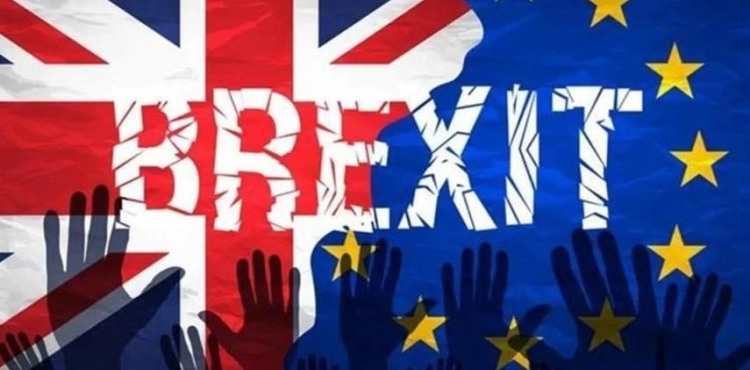British Prime Minister Boris Johnson will send his envoy to Brussels on Thursday for final negotiations on Brexit, while the EU´s chief negotiator said it would be "very difficult" to reach an agreement. Not wear off "possible."
The European Union had given the British government until the end of the week to submit an acceptable compromise and reach an amicable separation on October 31, three years after a referendum in which 52 percent of Britons voted to leave the union.
In the absence of an agreement, Britain is preparing to pull out what could be devastating to its economy unless parliament obliges Johnson to seek a third postponement.
While the two sides appeared to be preparing for the failure of their attempts, Brexit Minister Steve Barclay will meet in Brussels on Thursday with EU chief negotiator Michel Barnier to review the situation after a "week of technical negotiations", the British government announced on Wednesday.
"I think the deal is possible, very difficult but possible," Barnier told Sky News on Wednesday. "The EU will remain calm, vigilant and constructive," he said.
A week ago, negotiations were taking place on the basis of a draft presented last week by Boris Johnson to try to resolve the Irish border dilemma, which the Europeans reject.
The aim is to avoid the restoration of a physical border between the British province of Northern Ireland and the Republic of Ireland, a member state of the European Union, and to protect peace on the island which has seen decades of violence.
Negotiations did not allow the settlement of differences and British sources on Tuesday that it is unlikely to reach an agreement, after a telephone conversation between Johnson and German Chancellor Angela Merkel.
British leaks over the conversation angered European Council President Donald Tusk, who accused the British prime minister of playing "the future of Europe" by playing a "stupid game of finding guilty" if negotiations failed.
Johnson also telephoned his Irish counterpart Leo Faradkar on Tuesday evening and "hope they will meet", the British government said. But Faradkar said it was "very difficult to reach an agreement until the end of next week," according to RTI television.
The goal is to reach an agreement before the European summit to be held on October 17 and 18. If no agreement is reached on the 19th of the same month, a law imposes on the Prime Minister a request to postpone Brexit for three months, although he promised to do so at any cost on 31 October.
British media said the government could call an extraordinary session of parliament on October 19, whatever the outcome of the EU summit. It will be the first time British lawmakers have met on Saturday since the Falklands War in 1982.
In any case, it seems that early elections must be held because of the depth of the political crisis in which Britain drowned because of Brexit, and all parties are preparing for this possibility.
In a sign that Brexit without agreement seems more and more likely, more than 1.8 million Europeans have asked to remain in the country after leaving the EU, half a million of them in September alone.
"When we frighten people, they are worried and trying to ensure their situation, and the government has aroused great fear when I talked about an exit without agreement," said Nicholas Hutton, founder of the 3 million European advocacy group in the UK.
In an interview with French newspapers Les Echos and Le Penignon, European Commission President Jean-Claude Juncker warned that a divorce without agreement "would lead to Britain´s stagnation and a clear weakness of the continent´s growth."
"The departure of a member state for domestic policy reasons is a real tragedy," he said.












